“Been in America”: Interviews with German researchers in the USA and Canada
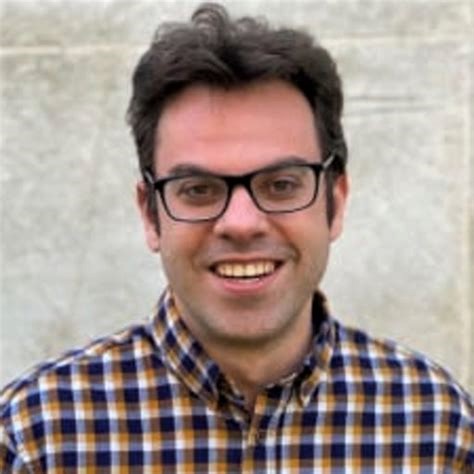
Dr. Theophilos Dimitrios Tzaridis
© Privat
(04/20/2022) Through its research fellowship programs the DFG supports early-career academics by funding an independent research project both abroad and in Germany. A large proportion of these fellowships are awarded in the USA and Canada, reflecting the belief still prevalent in many disciplines that for a research career it is helpful to have “been in America.” In this series of talks, we aim to give you an impression of the range of DFG funding recipients. Let’s take a look at who is behind funding number TZ 102.
DFG: Dr. Tzaridis, thank you so much for taking the time to talk to the DFG’s Office North America. In your CV it says you were born in Thessaloniki, the cultural centre of Macedonia – but your first or at least your middle name is not Alexander. Did someone forget something there?
Theophilos Dimitrios Tzaridis (TDT): First I would like to say thank you, primarily for the fellowship that is enabling me to pursue very fruitful research here in San Diego, and then of course for the opportunity to talk a bit more about my personal story than would be appropriate in a professional CV. Alexander the Great, with all his strengths and weaknesses, is so deeply rooted in Thessaloniki that he’s always included in the naming of babies – so much so that he doesn’t even need to be specifically mentioned on a birth certificate. Theophilos was my grandfather’s first name and my second name Dimitrios comes from Saint Demetrios, the patron saint of Thessaloniki.
DFG: You spent your school years in Thessaloniki, but then went to Heidelberg to study human medicine. How did that come about?
TDT: German culture and education are very highly regarded in Greece despite the many upheavals during the first half of the 20th century. In view of this, my parents wanted to give me the alternative of taking up a career outside Greece, so they sent me to the German School in Thessaloniki. My parents are both lawyers, by the way, and up until the end of secondary school I could very well have imagined a legal or diplomatic career for myself – possibly even a career in an international organization, since languages were at least something that I have always loved. It’s still difficult for me to say exactly what it was that ultimately stopped me from going down that path. A performance of Friedrich Dürrenmatt’s The Visit at my school, in which I played Alfred III, may have been one factor. I’m sure you’re familiar with this grotesque tragedy about the corruptibility and ambiguity of people and politics. The Oath of Hippocrates seemed to me to offer greater clarity by comparison.
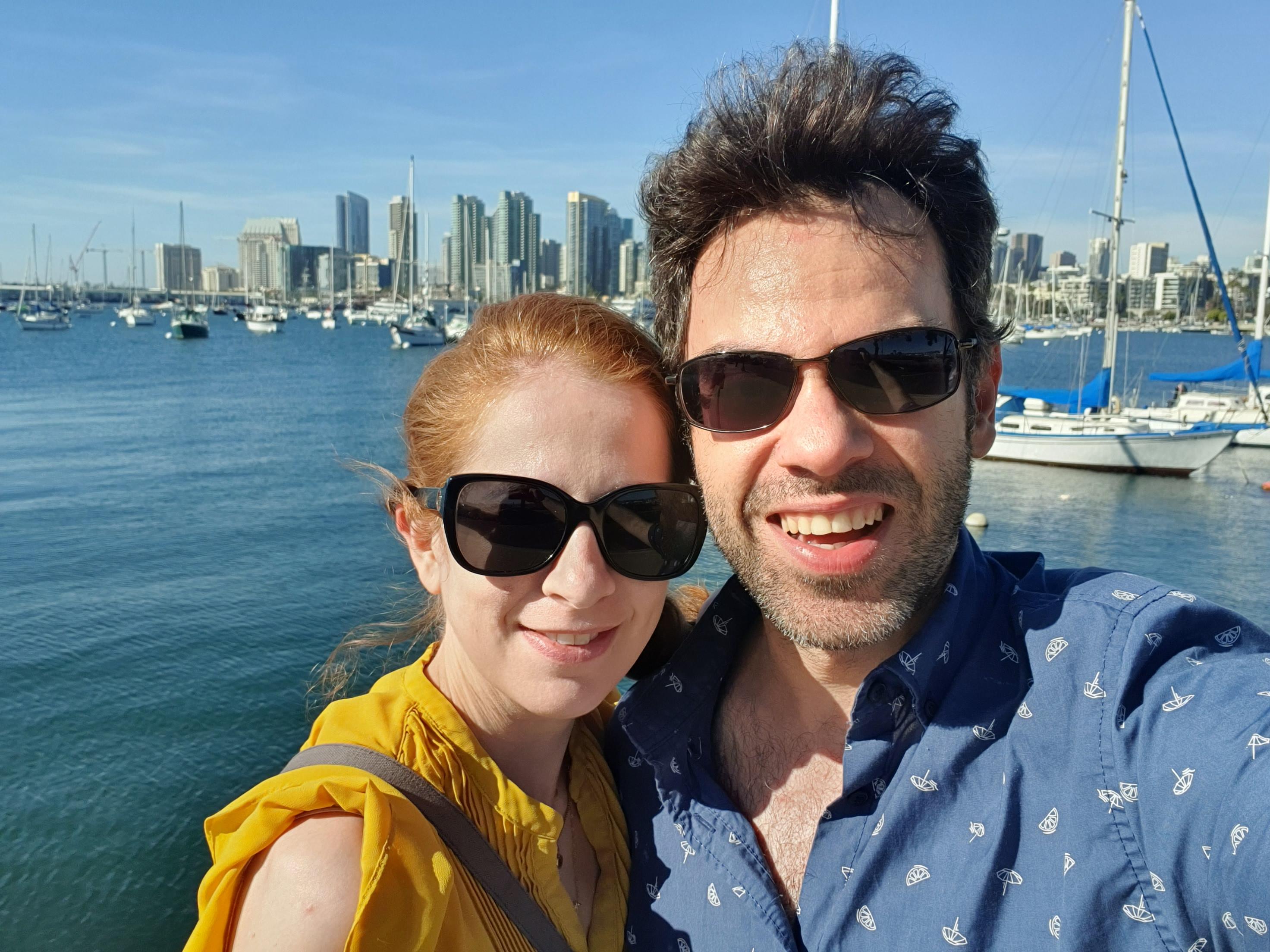
Simone and Theo Tzaridis in front of the San Diego skyline
© Privat
DFG: You left your parents’ home in Thessaloniki at the age of 18 and went abroad to study. Didn’t that make you homesick?
TDT: Of course I was homesick from time to time – after all, you’re bound to miss your friends and family. But the nice thing about starting my studies was that I found myself in a large group of other first-year students, most of whom were just as new to Heidelberg as I was. We all had similar timetables, concerns, and ideas about what to do and what to take photographs of in Heidelberg and the surrounding area. I also met my wife on the very first day of my studies – so things were a success all round!
DFG: You studied medicine in Geneva for a while before taking your state examination. What took you there?
TDT: I was in Geneva for only two months and did part of my internship year there. This I saw as a chance to improve my French and to see another hospital, which has an excellent surgical department and operates in a different healthcare system. The city and surroundings were charming – albeit extremely expensive!
DFG: After your state examinations you then opted to go into neurology and oncology?
TDT: Well, the brain does happen to be the most interesting organ in the body! Neurology is a discipline where clinical examination and detailed dialogue with the patient are extremely important. In particular, the path from the patient’s history and clinical examination to the description of syndromes and diagnosis is absolutely fascinating. As far as oncology is concerned: the concept of how a cell gets out of line and starts to grow in an uncontrolled way is intriguing to me! If you combine the two disciplines, you have an area that involves highly interesting research, plus patients who urgently need help and better therapy.
DFG: To do your actual research, you then went to the Bonn Center of Neuroscience to join Professor Ulrich Herrlinger’s group. What was the reason for this step?
TDT: I went into research a little earlier; my doctorate on a protein that is important in tumour development led me to join Professor Stefan Pfister’s group at the German Cancer Research Center (DKFZ). He’s a pediatric oncologist and neuro-oncologist and is very keen to apply molecular biological findings to the treatment of his patients as quickly as possible, since they are often still very young. Towards the end of my doctorate, I then specialised in neurology and neuro-oncology at the University Hospital in Bonn, going on to complete my first post-doctoral stay in the group you mentioned. After this I focused on gliomas – brain tumours that arise from glial cells, an important type of tissue in the brain. In Bonn, my research focused on blood biomarkers to detect tumour growth, in adjunction with MRI imaging, in patients with gliomas.
Therapeutically, these tumours pose a considerable challenge and the prognosis for these patients is unfortunately very poor. But there are now very promising approaches with immunotherapy in other areas of oncology and the aim is to apply them to cancers of the central nervous system – though a lot of research is still needed in this area. This is the field I’m now involved in for my second postdoctoral stay here in San Diego.
DFG: In your current research project you’re focusing on checkpoint molecules. What role do these have to play in enabling cancer cells to evade the body’s potential immune response?
TDT: If the immune system fails to eliminate a cancer cell, this often is related to the presence of certain molecules. By identifying and inhibiting these molecules, you can lift the brake on the immune system, thereby mobilizing the body’s own defenses against the tumour. In our approach, we screen for different molecules and we already have promising data for a molecule that promotes the growth of gliomas and whose downregulation leads to an activation of the immune system and therefore the removal of the “brake” I just mentioned.
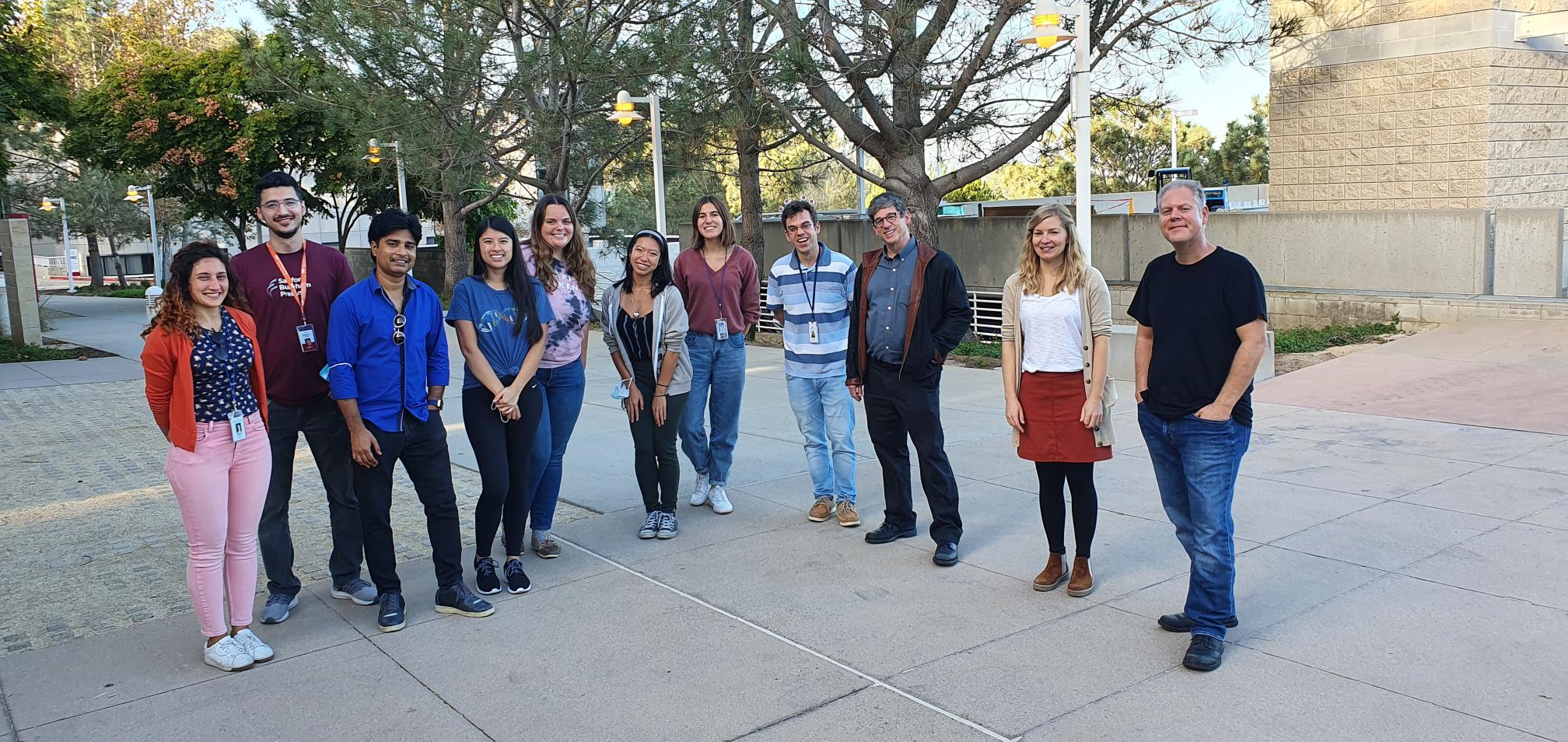
Robert Wechsler-Reya’s research group
© Privat
DFG: And Robert Wechsler-Reya’s group in San Diego is the best possible setting for this project?
TDT: Yes, it’s one of the very best in the world and very interested in translational research, i.e. direct application of basic research findings in practice. We can work on mouse models here but also on human cell cultures in the Petri dish. The latter saves us some animal testing, but it doesn’t always make sense: this is because cells and cell complexes often can’t be considered in isolation, only in the context of the organ or the whole organism.
DFG: How does your work in San Diego differ from what you were used to in Germany or Switzerland?
TDT: The questions, resources, methods and techniques are fairly comparable on both sides of the Atlantic, but US labs are somewhat faster than those in Germany all in all – the whole system seems much less bureaucratic and there’s a very collaborative working atmosphere. I often have the impression that hierarchies are flatter, for example, and a lot of the professors are more approachable. But I’m certainly very lucky to be in Robert Wechsler-Reya’s lab– the interaction between all the staff here is excellent. My boss in particular is very open and supportive and holds very regular meetings with all staff (on a weekly basis in fact), which is extremely important and helpful!
DFG: If we had a crystal ball and could see what will happen by the year 2050: What are the chances of “beating” cancer, and if it is at all possible, by what means?
TDT: In cancer treatment, the three classic pillars – surgery, chemotherapy and radiation – are very well developed. We’re currently developing an additional and extremely promising option with immunotherapy. Although the results for brain tumours to date are unfortunately disappointing, we’re all working hard to better understand the molecular basis so as to be able to develop new strategies to improve the response to immunotherapy. If we can manage to generate good preclinical data and transfer these sensibly to clinical trials, then something of this kind could be available as an approved treatment method by 2050 – though I would hope much sooner.
DFG: What is immunotherapy in cancer treatment in general?
TDT: If you imagine the human body – I'll leave out the mind and soul for the sake of simplicity – as a largely functioning cooperative model, then tumour cells are the ones that have unilaterally stopped cooperating for reasons that are still not sufficiently understood. Initially, this is nothing unusual – it happens all the time and we have certain defense mechanisms at our disposal to maintain the overall system. But this immune defense is paralyzed with regard to cancer, so the disease is able to inflict harm on the entire organism if unchecked. So the goal is to understand how cancer cells are able to evade the body’s own immune system so we can put a stop to this process. Scientists are on to something right now and believe that they’ll be able to trigger a targeted immune response to cancer in the near future using various technologies.
DFG: What is your day-to-day work routine like right now?
TDT: I arrived here in San Diego in February 2020 just before the labs were closed down due to Covid-19. It took a while for things to get back to normal and currently we’re still suffering from the aftermath of the pandemic, e.g. in the form of supply shortages. I spend most of my working day at the lab, from about 9 am to 6 pm. I sometimes then go on analyzing results at home, or else I might prepare a results presentation or a paper. My wife is an ophthalmologist so I like to discuss scientific ideas with her, though I’m certainly mindful of the fact that your job shouldn’t take up 24 hours of the day – cooking and dinner can sometimes be more important!
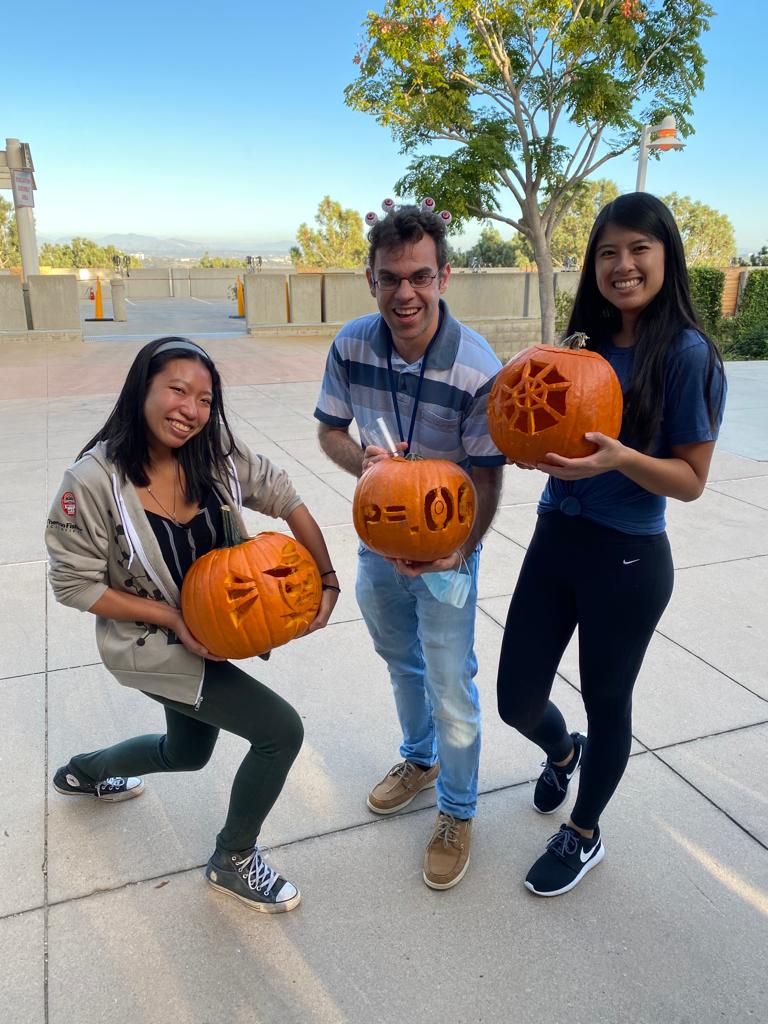
Having fun carving the pumpkins*
© Privat
DFG: What else do you do to relax?
TDT: I like hiking, running, swimming – there are so many things you can do so easily here outdoors, and the beauty of the landscape is breathtaking. There’s the Pacific Ocean and very beautiful beaches either in Pacific Beach or else in Coronado – a peninsula just outside downtown San Diego. Inland, there are attractions like Joshua Tree National Park and – a little further away – Death Valley. For fans of Mexican culture, Tijuana is just to the south of San Diego: if you miss the last exit on the San Diego highway you may well find yourself at the national border and be asked for your passport.
DFG: In Heidelberg you were reasonably immune to homesickness for Greece. Does that apply here, too, in terms of missing Europe?
TDT: Yes and no. The landscape and climate in Southern California are simply incredible – as is the fact that you can pick lemons from the trees and enjoy eating them! But as time goes by it becomes apparent that the social system and healthcare system in the US are much more market-driven. This may have advantages at the top, but on a broader scale it has enormous disadvantages that are obvious on a day-to-day basis – and very visible in the case of homelessness, for example.
DFG: Let’s take another detour back to Greece: as a child from Thessaloniki, you probably also grew fond of the International Film Festival there and became interested in film. Do you have a favourite movie?
TDT: I hope this isn’t a trick question where I’m supposed to answer Zorba the Greek or else I’d lose my material cost subsidy. Alexis Zorba certainly has its charms and a wonderful score by Mikis Theodorakis, but Roberto Benigni’s La vita è bella is definitely one of my personal top ten.
DFG: That’s an interesting choice and somewhat reminiscent of The Visit in its mixture of tragedy, comedy and the grotesque. What do you find fascinating about it?
TDT: Yes, it’s exactly that mixture of brutal reality, deep human affection and a humour that perhaps makes the reality seem even more brutal – but on the other hand makes what seems unbearable more bearable. The famous “Buon giorno principessa” scene is about nothing other than the beauty of flowers – and the film allows us to savour this even though we already suspect disaster. Oskar and the Lady in Pink, the novel by Eric-Emmanuel Schmitt, works in a similar way: here a terminally ill boy named Oskar lives and experiences each day as if it were a decade of his life, writing letters to “dear God.” By the end, he has lived a life full of beautiful moments. But the book also deals with how Oskar repeatedly struggles with God due to his illness and approaching death, though he is ultimately able to reconcile himself with his fate and the people in his life before dying. As doctors, we naturally experience similar situations and questions time and again when we support patients in oncology.
But the things I watch don’t always have to be that deep; I can quite happily enjoy shallower things like Babylon Berlin, the kind of series you currently find on streaming services. I like political satire very much, too – I love watching Heute Show and Anstalt on German TV, for example.
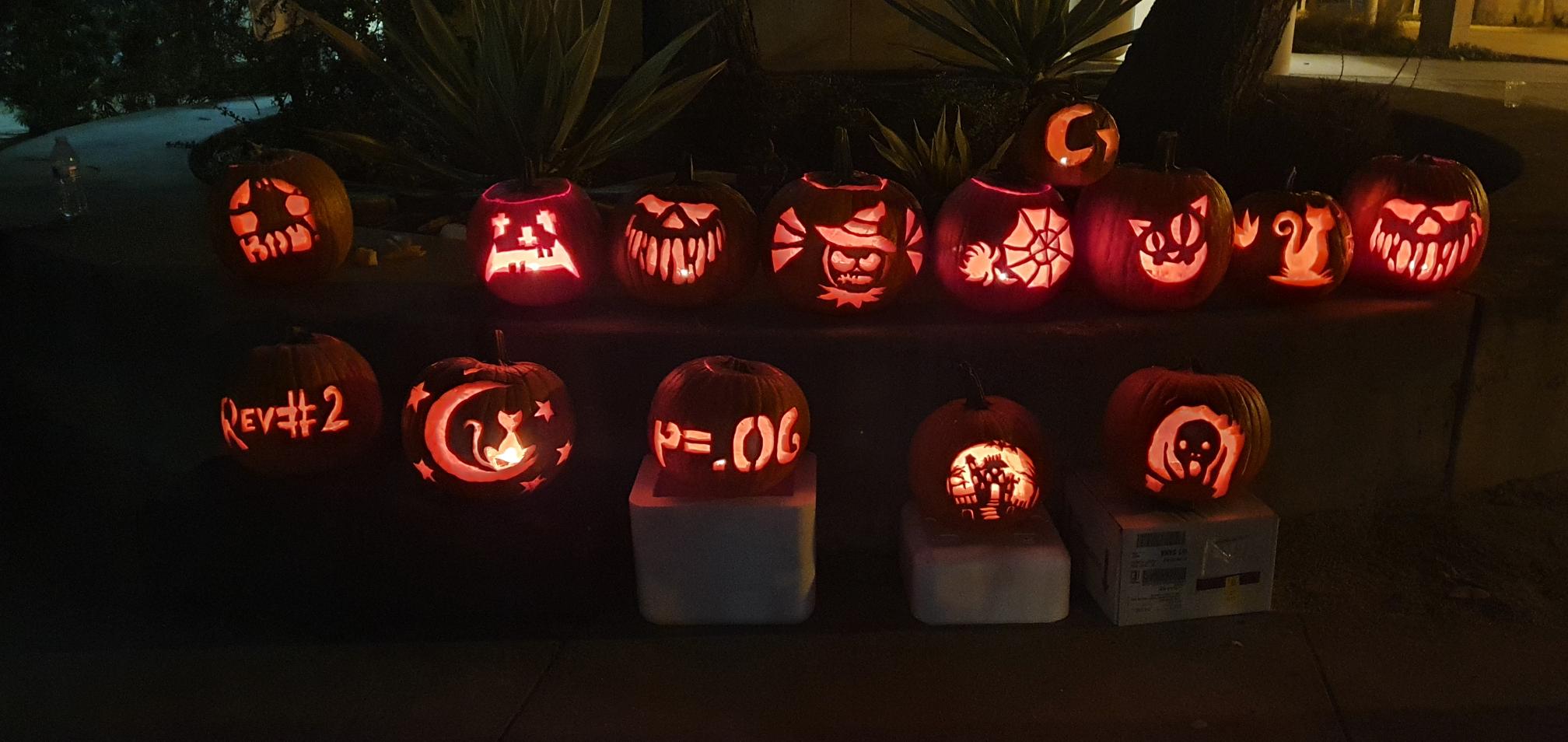
Pumpkin carving for Halloween with two contributions from Tzaridis*
© Privat
DFG: Let’s look into the crystal ball again, now with a time frame of about ten years: where do you see yourself in terms of your career?
TDT: In my case, desire and ambition would very likely cloud the view, so the vision I’m going to conjure up now is by no means based on certainty. My wife and I live in a place in Germany where we both have a research group. We have children and I’m doing research work in the lab as well as with patients in the clinic. Having gained my post-doctoral lecturing qualification, I have – hopefully! – been appointed to a professorship, because in addition to research I enjoy teaching very much too, not least because it gets you into contact with all that emerging talent that is just bubbling over with ideas.
DFG: Finally, after looking into the future, let’s take a look at the recent past and Otto Rehhagel’s time as coach of the Greek men’s national football team.
TDT: Of course – I have both Greek and German citizenship so I was very pleased when Mario Götze put Germany one up against Argentina in the 2014 World Cup final and when Angelos Charisteas did the same for Greece against Portugal in the European Championship final ten years earlier. According to a lot of experts, the Greek national team owed its unexpected success to its coach at the time, Otto Rehhagel, who subsequently became naturalized in the hearts of the Greeks, either as King Otto or Otto Rehhakles. As dramatic as the Greeks’ success may have been, the tactics used by Rehhagel, a trained defender, were uninspiring: don’t let anyone in at the back, and wait for the one corner up front to score the winning goal. With German efficiency and Greek enthusiasm, they beat France 1-0 in the quarter-finals and the Czech Republic by the same score in the semi-finals. I personally see it as one of the highlights of recent Greek-German relations – but now I’ll stop demonstrating my total lack of expertise when it comes to football.
DFG: Well let’s keep our fingers crossed that there’ll be more such highlights in Greek-German relations in the future. Thank you very much for this informative and entertaining interview and we hope very much that your vision for the future hews closely to what you see in the crystal ball.
*Following a lab tradition, pumpkins were hollowed out and decorated with scary motifs for Halloween 2021. The contributions by Theophilos Tzaridis are “Rev#2” and “p=0.06” as an expression of two possible horror scenarios for a scientist: namely the second and often dismissive reviewer (Rev#2) and a study outcome that only just misses statistical significance (p=0.06).